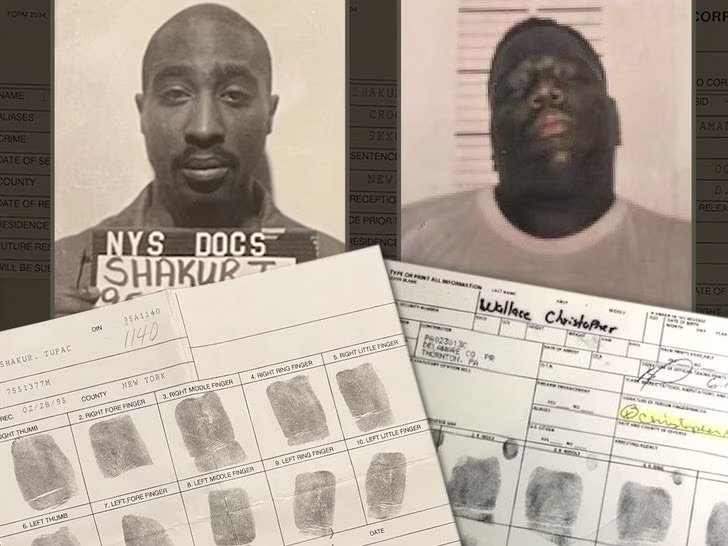In an unexpected turn, the arrest fingerprints of hip-hop legends Tupac Shakur and Biggie Smalls have surfaced in a controversial market, available for purchase at a hefty price of $225,000. This unique opportunity presents enthusiasts and collectors with the chance to own a tangible piece of history linked to these iconic artists, raising complex questions about the intersection of preservation, privacy, and legacy.
Tupac Shakur and Biggie Smalls, central figures in the history of hip-hop, left an indelible mark on the music industry before their tragic deaths. The sale of their arrest fingerprints introduces a novel dimension to the concept of collecting memorabilia associated with beloved cultural icons.
While collectors may be drawn to the prospect of owning artifacts connected to Tupac and Biggie, a broader discussion emerges about the delicate balance between preserving historical items and respecting the privacy and legacy of the individuals involved. The sale of such intimate and personal artifacts prompts ethical considerations about the motivations driving their acquisition.
The question arises: What drives individuals to purchase these pieces of history, and what responsibilities come with owning such items? The fingerprints, symbolic of a moment in the artists' lives that involved legal challenges, raise concerns about the commodification of personal struggles and the potential exploitation of their legacies.
The ethical quandary surrounding the sale of Tupac and Biggie's arrest fingerprints delves into the intersection of fandom, historical preservation, and the responsibility of collectors. It prompts reflection on the line between appreciating an artist's impact and crossing boundaries that may infringe upon their personal history.
As these artifacts enter the market, debates about cultural heritage, historical significance, and the responsibilities of those who profit from such sales gain prominence. The controversy surrounding the fingerprints invites a critical examination of the evolving landscape of celebrity memorabilia and its impact on how we remember and honor cultural icons.
In a world where the legacy of Tupac Shakur and Biggie Smalls continues to inspire generations, the sale of their arrest fingerprints underscores the complexities of navigating the intersection between commerce, history, and the preservation of artistic legacies. The ethical discourse surrounding these artifacts serves as a reminder that the value we place on tangible connections to history requires careful consideration and respect for the individuals who shaped it.









